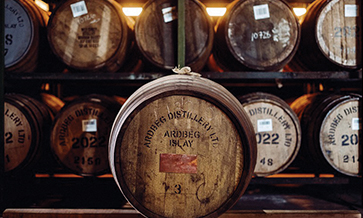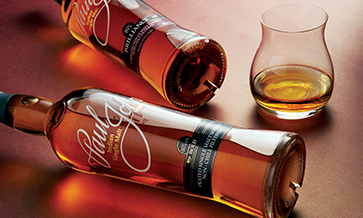The beverage crate market refers to the segment of the packaging industry dedicated to manufacturing, distributing and selling crates specifically designed for the transportation and storage of beverages. These crates are robust containers tailored to hold bottles and cans securely, ensuring safe handling and efficient logistics across the supply chain.
With the continuous expansion of the beverage industry, covering soft drinks, beer, wine and other alcoholic and non-alcoholic beverages, the demand for durable and environmentally friendly packaging solutions provided by beverage crates is on the rise.
According to a report released recently by Persistence Market Research, the global beverage crate market is anticipated to grow at a compound annual growth rate (CAGR) of 5.6%, reaching an estimated value of US$ 638.2 million by 2031, up from the projected US$ 435.8 million in 2024.
Beverage crates are specialised containers made from materials like plastic, wood, or metal, designed to accommodate and transport bottles or cans of various sizes. They are available in different configurations, including standard sizes for soft drink bottles, beer bottles, wine bottles, and custom designs tailored to specific beverage brands.
Equipped with sturdy handles for easy carrying, these crates are stackable to optimise storage space in warehouses and retail outlets. The beverage crate market encompasses manufacturers, suppliers, and distributors catering to the diverse needs of beverage producers and retailers worldwide.
Sustainable solutions
The growth of the beverage crate market is fuelled by the expanding beverage industry, which includes the rapid growth of craft breweries, wineries and soft drink manufacturers on a global scale. With sustainability gaining prominence, there is an increasing focus on eco-friendly crate materials and reusable packaging solutions within this market.
Additionally, innovations such as collapsible crates and smart tracking technologies are shaping the future of beverage crate designs, offering improved efficiency and traceability in the supply chain.
The market presents opportunities for companies to innovate and address the evolving demands of beverage producers and retailers for safe, efficient, and sustainable packaging solutions according to Persistence Market Research.
The beverage crate market is witnessing a surge in demand, primarily fuelled by a growing emphasis on sustainability. With heightened environmental awareness among consumers and businesses, there is a notable shift towards eco-friendly packaging solutions.
This trend is driving manufacturers to innovate with materials such as recycled plastics, cardboard and wood to produce sustainable beverage crates. These crates not only offer durability and functionality but also align with eco-conscious values, making them increasingly preferred by beverage producers and distributors.
Furthermore, regulatory measures and corporate sustainability goals are acting as catalysts, further propelling the adoption of eco-friendly packaging solutions and subsequently boosting the growth of the beverage crate market.
Expanding channels
The beverage crate market is experiencing significant expansion due to the increasing complexity of beverage distribution networks and the surge in e-commerce channels. With the rise of specialty beverages, craft breweries, and artisanal products, there's a heightened demand for efficient packaging and logistics solutions.
Beverage crates play a pivotal role in this scenario, offering stackability, stability, and protection during transit.
Moreover, the rapid growth of e-commerce platforms for beverage sales necessitates sturdy packaging solutions like beverage crates that can withstand the rigors of shipping and handling.
Despite the market’s growth, sustainability pressures pose significant challenges to the beverage crate industry. Traditional materials like plastic, commonly used in crate manufacturing, face intense scrutiny due to their environmental impact.
Concerns over plastic pollution, carbon emissions, and limited recyclability drive stakeholders to seek eco-friendly alternatives. But transitioning to sustainable materials presents challenges such as cost implications and technical feasibility.
Regulatory landscape
Navigating a complex regulatory landscape presents another hurdle for the beverage crate market. Varied regulations on product packaging, transportation, and waste management across different regions pose compliance challenges for manufacturers and distributors.
Adhering to diverse standards requires significant investments in research, development, and adaptation of manufacturing processes. Moreover, regulatory changes or trade disruptions can disrupt supply chains, impacting market expansion efforts.
To mitigate these challenges, industry players must stay abreast of evolving regulations, streamline compliance processes, and engage proactively with regulatory bodies.
Driven by consumer demand and regulatory pressures, manufacturers are increasingly investing in sustainable alternatives such as recycled plastics, biodegradable polymers, and innovative materials like bamboo or moulded pulp.
Smart integration
Integration of smart solutions presents another promising opportunity for the beverage crate market. With the advent of ‘Industry 4.0’ and IoT technologies, smart crates embedded with sensors and RFID tags enable real-time tracking, inventory monitoring and route optimisation.
This enhances supply chain efficiency, reduces logistics costs, and minimises the risk of loss or theft during transit. Additionally, data collected from smart crates can provide valuable insights for demand forecasting and inventory management.
As demand for transparency and efficiency grows, integrating smart crate solutions can help manufacturers stay competitive and meet evolving customer expectations.
The beverage crate market is fiercely contested by major players like Schoeller Allibert, Polymer Logistics, DS Smith Plastics, IPL Plastics and Craemer Group. Each company employs distinct strategies to gain a competitive edge.
Schoeller Allibert focuses on innovation, introducing new designs and materials. Polymer Logistics emphasises sustainability, offering eco-friendly solutions. DS Smith Plastics provides customisation, catering to specific client needs.
IPL Plastics prioritises cost-effectiveness through efficient manufacturing. Craemer Group emphasizes durability and reliability. Key advantages for these leaders include strong brand reputation, diverse product portfolios, global presence, and robust distribution networks.
Regional dynamics
The beverage crate market exhibits varying trends and dynamics across different regions globally. Factors such as economic development, consumer preferences, regulatory frameworks, and industrial infrastructure significantly influence market dynamics and growth trajectories.
North America holds a significant share in the global beverage crate market, driven by the presence of well-established beverage industries, including breweries, wineries and soft drink manufacturers.
Additionally, the expansion of e-commerce channels for beverage distribution amplifies the need for sturdy and efficient packaging solutions, driving market growth. But stringent regulatory standards and compliance requirements pose challenges for market players, necessitating continuous innovation and adaptation.
Europe represents another prominent market for beverage crates, characterised by a mature beverage industry and a robust commitment to sustainability. The region's stringent regulations on plastic usage and waste management drive the adoption of eco-friendly packaging solutions, propelling the demand for sustainable beverage crates made from recycled plastics or bio-degradable materials.
The proliferation of craft breweries and specialty beverages fuels market growth, as beverage producers seek reliable packaging solutions to maintain product integrity during transportation and storage.
The Asia-Pacific region emerges as a rapidly growing market for beverage crates, fuelled by the increasing consumption of beverages and the expansion of the beverage industry. Countries like China, India and Japan witness a surge in demand for beverage crates due to the proliferation of urbanisation, changing consumer lifestyles, and the growing popularity of packaged beverages.
However, market players encounter challenges such as diverse market dynamics, regulatory complexities, and intense competition, necessitating tailored strategies to capitalise on emerging opportunities and overcome barriers to growth.
Latin America, West Asia and Africa also present dynamic market landscapes for beverage crates, characterised by the presence of diverse beverage industries and evolving consumer preferences.
The growing middle class, urbanisation trends, and rising disposable incomes in these regions drive demand for packaged beverages, consequently fuelling the need for reliable packaging solutions. For more information, write to pooja@persistencemarketresearch.com.














